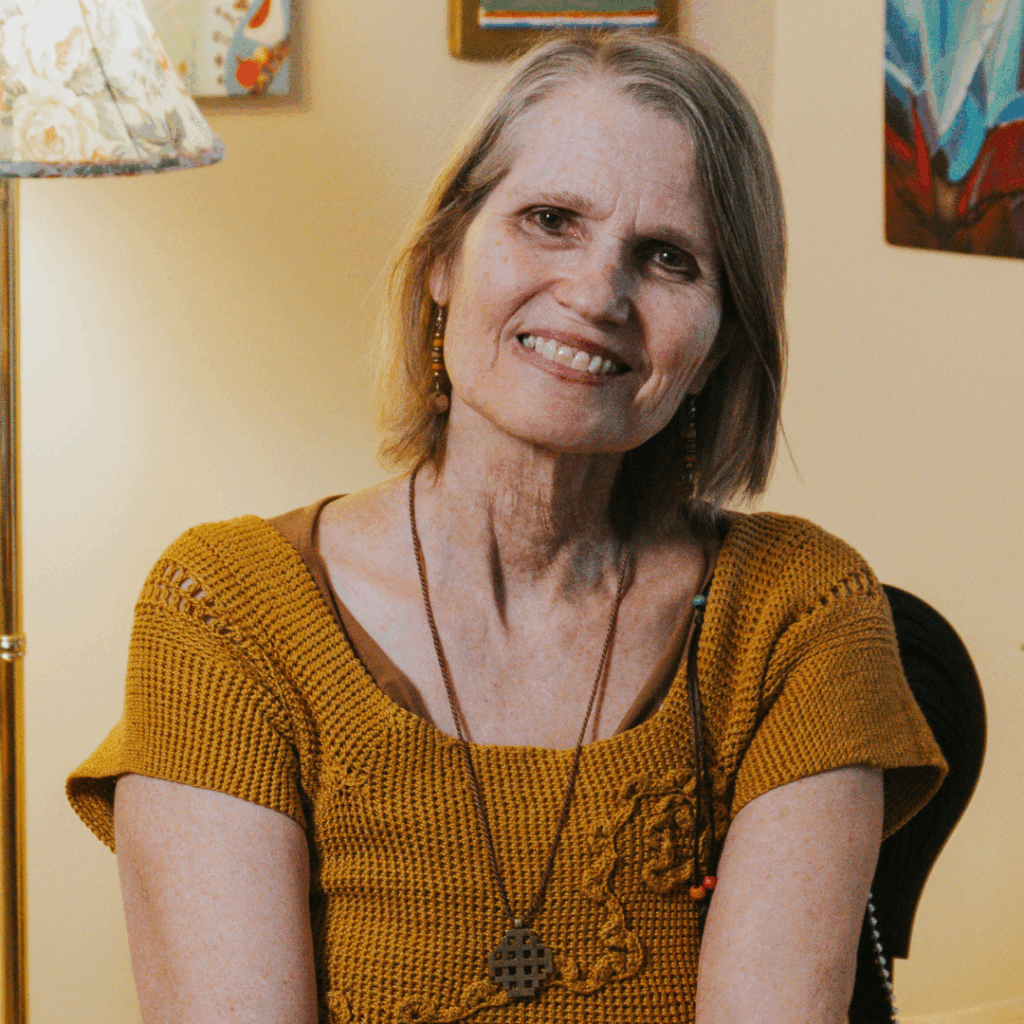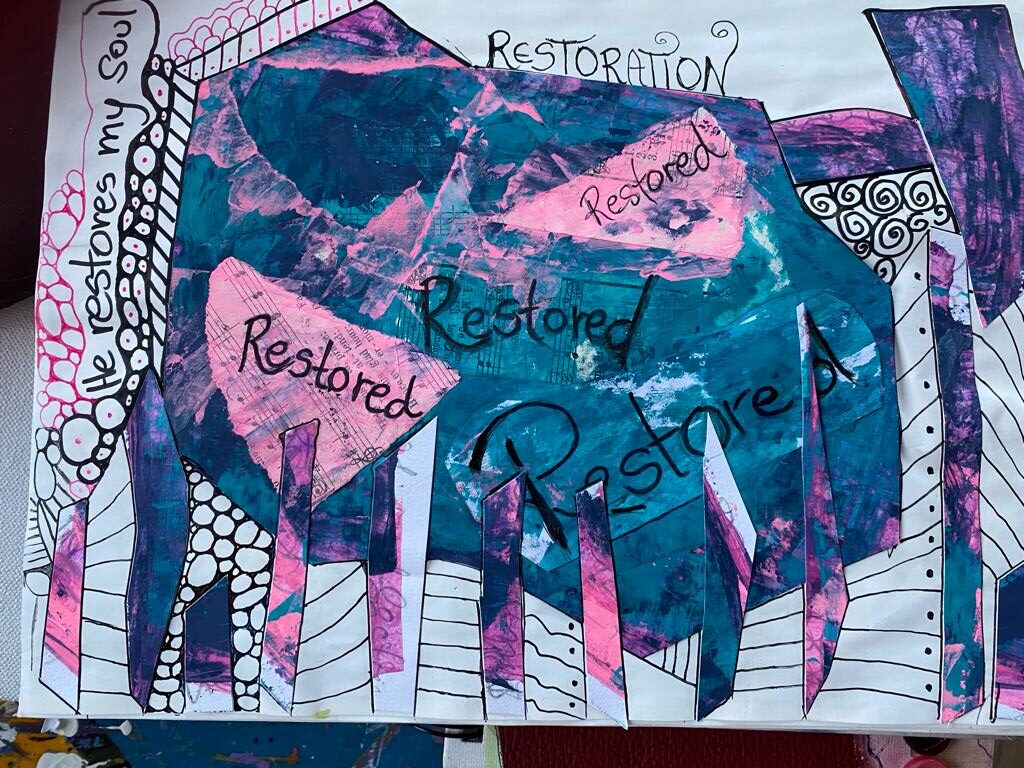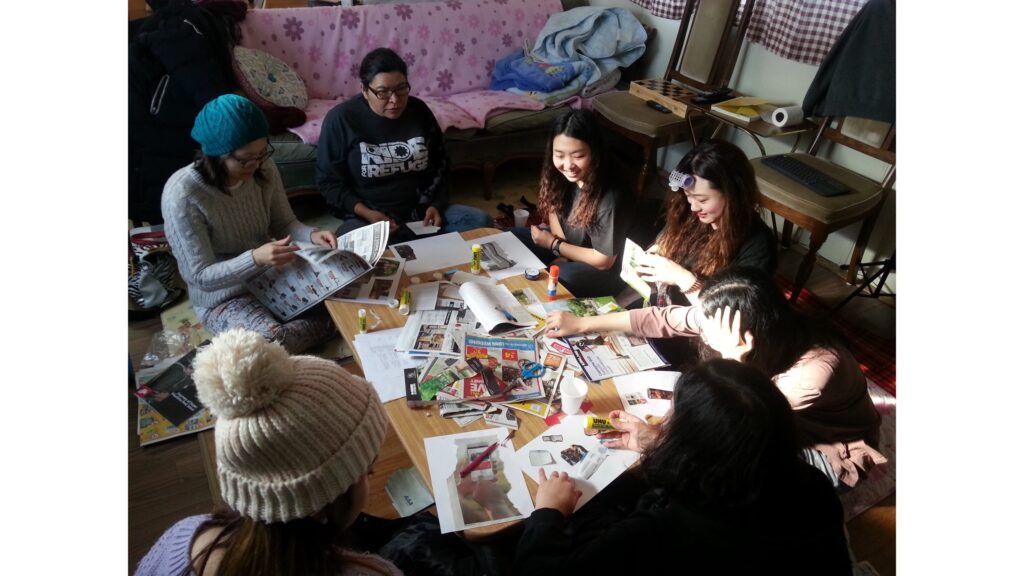DR. ELFRIEDA LEPP-KAETHLER
Associate Professor of TESOL, University College

ABOUT ELFRIEDA
Elfrieda Lepp-Kaethler (Ph.D. Psycholinguistics, University of Nottingham, UK, Diploma in Expressive Arts Therapy) grew up on a grain farm near Rivers, Manitoba. She has worked as a language teacher, teacher educator and expressive arts consultant educator in many countries including Paraguay, Ukraine, China, The Philippines, Moldova and Greece. On faculty at Providence since 2000, she has directed the M.A. TESOL and M.Ed. TESOL programs since 2006. Her research interests include motivation in language learning, the role of expressive arts in instructed second language acquisition, and trauma-sensitive language learning with forcibly displaced children and adults (refugees). One of her favourite hobbies is committing random acts of crocheting.
Q: Where were you born and raised, and/or call home? Before arriving at Providence, where did you live and what did you do?
My home stomping grounds are on a grain farm in southwestern Manitoba. I’m a second-generation newcomer to Canada and was cradled in the Anabaptist Mennonite church tradition where I continue to be active, now living in the southeast of the province. When I was a teenager, my farmer parents added a Paraguayan cattle ranch to their roster. This opened the globe to me and propelled me on a tour that is still spinning. These early intercultural experiences profoundly shaped my worldview. I became fascinated with the interplay of language and culture, and their impact on cross-cultural relationships.
Q: Post-Secondary education (i.e. degrees and schools)?
My first post-secondary degree was in Bi-lingual Education (German/Spanish) in a Paraguayan university. While teaching in an indigenous village in the Chaco region, I met my Paraguayan husband. We spent a two-year honeymoon studying in a seminary in California. Back in Manitoba, I completed a Bachelor of Education at University of Winnipeg. A further stint in Paraguay found me working in adult basic education (curriculum development and teacher education in literacy and Spanish as an Additional Language) with indigenous women.
Q: What about Providence was appealing to you?
Since returning to Manitoba in the mid-90’s I completed an MA TTESOL (now MA Education in TESOL) at Providence. As a student, I was coming home to the prairies, but not only geographically speaking. During my studies at Providence, I was fortunate to learn with professors like Gail Tiessen and Daryl Climenhaga, who with their own rich international experience, helped me find a place to land.
Q: What is your current role at Providence?
I was privileged to join the faculty at Providence in 2000 where I continue to work as Director of Graduate Studies in TESOL. During this time, I completed a PhD (Psychology of Language Learning) at University of Nottingham, UK. My role as a teacher educator and expressive arts consultant educator has taken me to Paraguay, Brazil, Ukraine, China, The Philippines, Moldova and Greece.
Q: Describe your teaching and research interests, and professional accomplishments/achievements.
I’m fascinated by why and how people learn, especially how they learn additional languages and how they learn to become teachers of language. Many of my students are international, and to be honest, that is where I feel most at home. I love supervising research theses, cheering my students on as they delve into deep and important projects. Occasionally I get so caught up with their topics that I join them and keep going with the research even after they are finished their theses. For example, through a graduate student of mine, Katy Shimp (now co-researcher and colleague) I was introduced to the idea of integrating learner-created art in working with adult refugee learners. I began to see tremendous potential for developing a trauma-sensitive approach to language teaching. This propelled me to pursue a Post-Graduate Diploma in Expressive Arts Therapy.
Since 2020 I have been involved with Beyond Borders, Beyond Borders – TeachBeyond an NGO that works with forcibly displaced children and adults (refugees). I am on a curriculum development team where we produce trauma-sensitive art-based English language coursebooks, currently being piloted in refugee settings in Greece, Iraq and in the USA. This work, in turn, has resulted in an MOU between Beyond Borders and Providence which includes designing educational programming for teachers working in areas of conflict and crisis. I am very excited about the new Master of Arts in Trauma-sensitive Education Arts for Learning and Healing which we are preparing to launch through our CODE (Center for On Demand Education).
Q: What is something you hope people will learn/remember from your classes?
While studying Expressive Arts, I discovered that learning English (in fact, learning anything!) can be an emotionally traumatic experience. I also discovered that there are ways to foster emotional healing in the classroom. I developed a course called Arts for Learning and Healing, which is now part of the MA TESOL and an elective course for psychology and counseling students. I believe that deep learning only happens when we are emotionally invested in our subject matter and our fellow human beings. Expressive Arts helps students make wholistic connections between cognitive and emotional aspects of their lives.
Q: What do you like to do outside of work?
My husband and I, along with four cats and two dogs, live on an acreage called “Green Gables of the Prairie” near Steinbach, Manitoba – that is, when we are not traveling somewhere. We love to host our adult children, their partners, friends and extended family. My art room/home office is always open to people interested in artmaking. It’s not about the end product, I tell them. It’s about the process.


